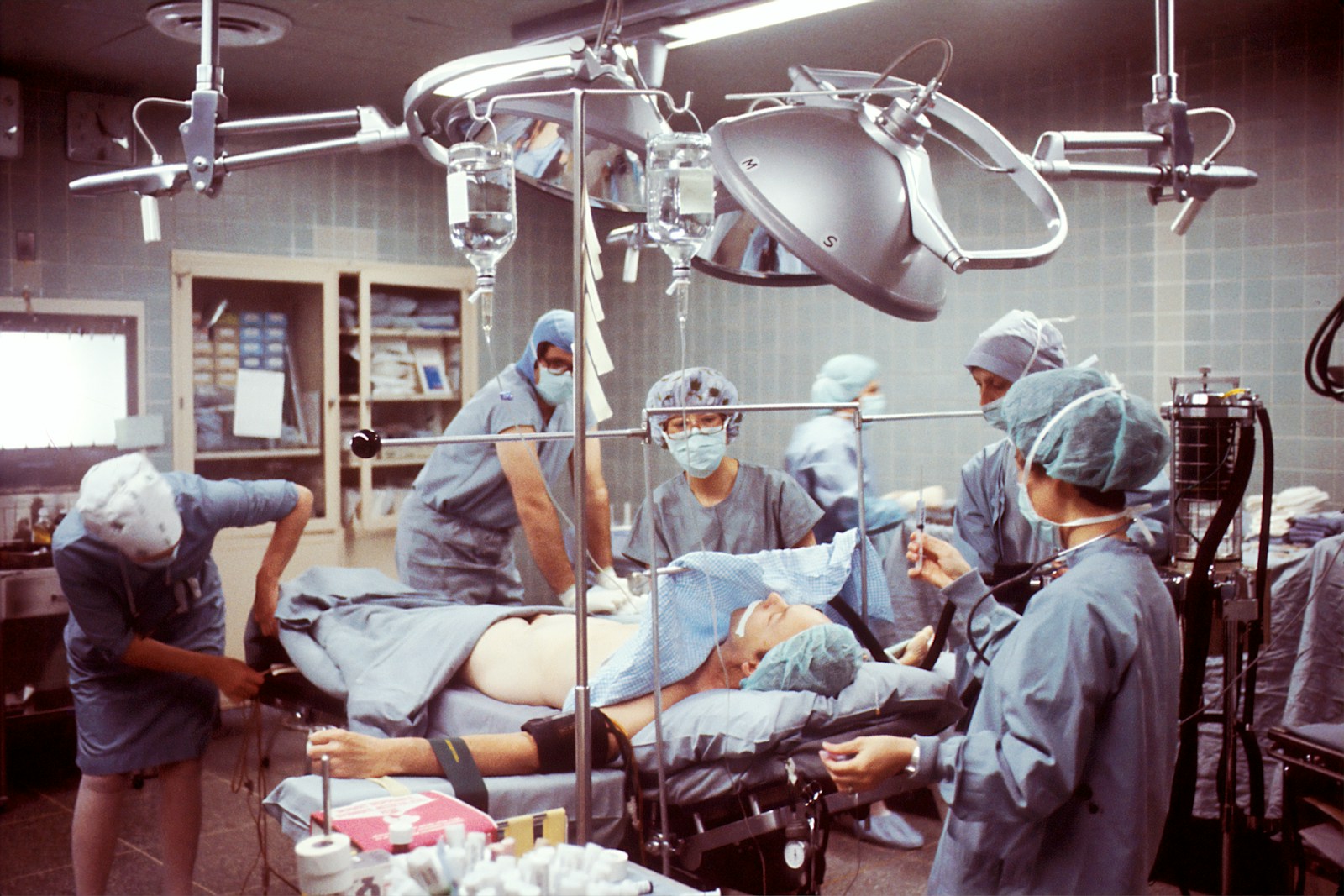An anesthesiologist is a well-trained professional whose work includes the administration of anesthetics and the supervision of a patient’s condition during surgery and in the pre- and postoperative periods. These are crucial staff that help in maintaining safety and comfort of their patients by closely observing a patient’s physiological parameters and the concentration of the anesthetic agent used in surgery.
Being an interdisciplinary profession, anesthesiologists collaborate with surgeons and operational nurses as well as with other members of the health care team in creating an individual anesthesia plan for each client. Orthopedic doctors can also offer ways to control pain other than through an operation, for example, ways on how to handle long-term pain or severe illness patients.
This very challenging work involves the knowledge of medicine, keen observation, and ability to explain oneself. They play the central role in ensuring that patients receive quality medical care making them critical players in hospital, clinics and surgery centers.
Resume Description for This Job
When crafting a resume for an anesthesiologist position, emphasize your medical training, specialized certifications, and experience in patient care and anesthesia management.
Sample Resume Description:
“Board-certified anesthesiologist with 8+ years of experience delivering safe and effective anesthesia solutions across diverse medical procedures. Skilled in preoperative evaluations, patient monitoring, and critical care management. Proficient in advanced anesthesia techniques, including regional, general, and sedation, with a proven track record of ensuring optimal patient outcomes in high-pressure environments.”
Key Skills to Highlight:
- Preoperative patient assessment and care planning.
- Expertise in administering general, regional, and local anesthesia.
- Advanced patient monitoring and life support.
- Proficiency in pain management techniques.
- Strong communication and collaboration with medical teams.
Feel free to adjust details to better match your experience!
Salary (Based Range in USA)
The salary of anesthesiologists in the United States is among the highest in the medical field, reflecting the extensive training and critical nature of their work.
- Entry-Level Salary: $275,000 – $300,000 per year.
- Mid-Level Salary: $300,000 – $400,000 per year.
- Senior-Level Salary: $400,000 – $600,000+ per year.
Anesthesiologists in metropolitan areas or working in specialized fields such as cardiac anesthesia or pediatric anesthesia often command higher salaries. Additional factors influencing compensation include years of experience, certifications, and the type of healthcare facility.
Responsibilities

The role of an anesthesiologist encompasses a wide range of duties to ensure patient safety and comfort during medical procedures.
Core Responsibilities:
- Patient Evaluation: Conduct preoperative assessments, including reviewing medical histories and discussing anesthesia options with patients.
- Anesthesia Administration: Administer general, regional, or local anesthesia tailored to the type of surgery and patient needs.
- Intraoperative Monitoring: Continuously monitor vital signs, such as heart rate, blood pressure, and oxygen levels, during surgery.
- Postoperative Care: Oversee patient recovery, manage pain relief, and address any complications related to anesthesia.
- Emergency Response: Provide immediate medical intervention in cases of adverse reactions or life-threatening conditions during surgery.
Additional Responsibilities:
- Collaborate with surgical teams to develop comprehensive care plans.
- Educate patients and families about anesthesia procedures and potential risks.
- Keep up-to-date with advancements in anesthesia techniques and medical technology.
- Supervise anesthesia assistants and nurse anesthetists as needed.
Qualifications
Becoming an anesthesiologist requires extensive education, training, and certification to ensure the highest standards of patient care.
Educational Requirements:
- Bachelor’s degree, typically in a science-related field.
- Doctor of Medicine (MD) or Doctor of Osteopathic Medicine (DO) degree from an accredited medical school.
- Completion of a 4-year residency program in anesthesiology.
Certifications:
- Board certification from the American Board of Anesthesiology (ABA).
- State medical licensure (required to practice).
- Advanced Cardiac Life Support (ACLS) and Basic Life Support (BLS) certifications.
Key Skills and Attributes:
- Medical Expertise: Deep knowledge of pharmacology, anatomy, and physiology.
- Attention to Detail: Precision in monitoring and adjusting anesthesia levels.
- Critical Thinking: Ability to make quick decisions in high-stakes situations.
- Interpersonal Skills: Effective communication with patients and medical teams.
- Adaptability: Ability to manage a wide range of medical procedures and patient conditions.
FAQs
Q1: An anesthesiologist describes daily duties and responsibilities of his/her professional life.
Some of the activities a daily routine of an anesthesiologist involves include; patient assessment before surgery, administration of anesthesia and management of surgical patients as they go through the operations and after wards.
Q2: How many years are needed to study anesthesiology?
On average, it will take one up to 12 to 14 years to complete the course through an undergraduate degree, medical college and the residency program. More fellowship training may take 1 to 2 years to honors a specialty in the area.
Q3: What are the dangers that an anesthesiologist might face?
The post comes with relatively high level of responsibility and stress since anesthesiologists deal with critical life issues. However, right training and experience reduce most of the risks.
Q4: What subfields does an anesthesiologist have an opportunity to venture?
Some of them are pediatric anesthesia, cardiothoracic anesthesia, intensive care and cancer pain management.
Q5: Is the employment opportunity for anesthesiologists increasing?
Indeed, growth in employment of anesthesiologists is expected due to the rising trends such as technologies and health surgical procedures.
Conclusion
This specialist has a key role in surgical and medical management and is solely responsible for patient’s safety and comfort during some of the most dangerous procedures in healthcare. Anesthesiologists are educated through extensive training, skill and duty that he or she pays in maintaining focus ensuring the specialty is crucial in current practice.
This profession should be a good paying one because it challenges expects and provides the opportunity to sub-specialize while catering to a patient’s need. Anesthesiology can be perfect for you in case you are loyal to accuracy, and you excel in conditions that require stress.
